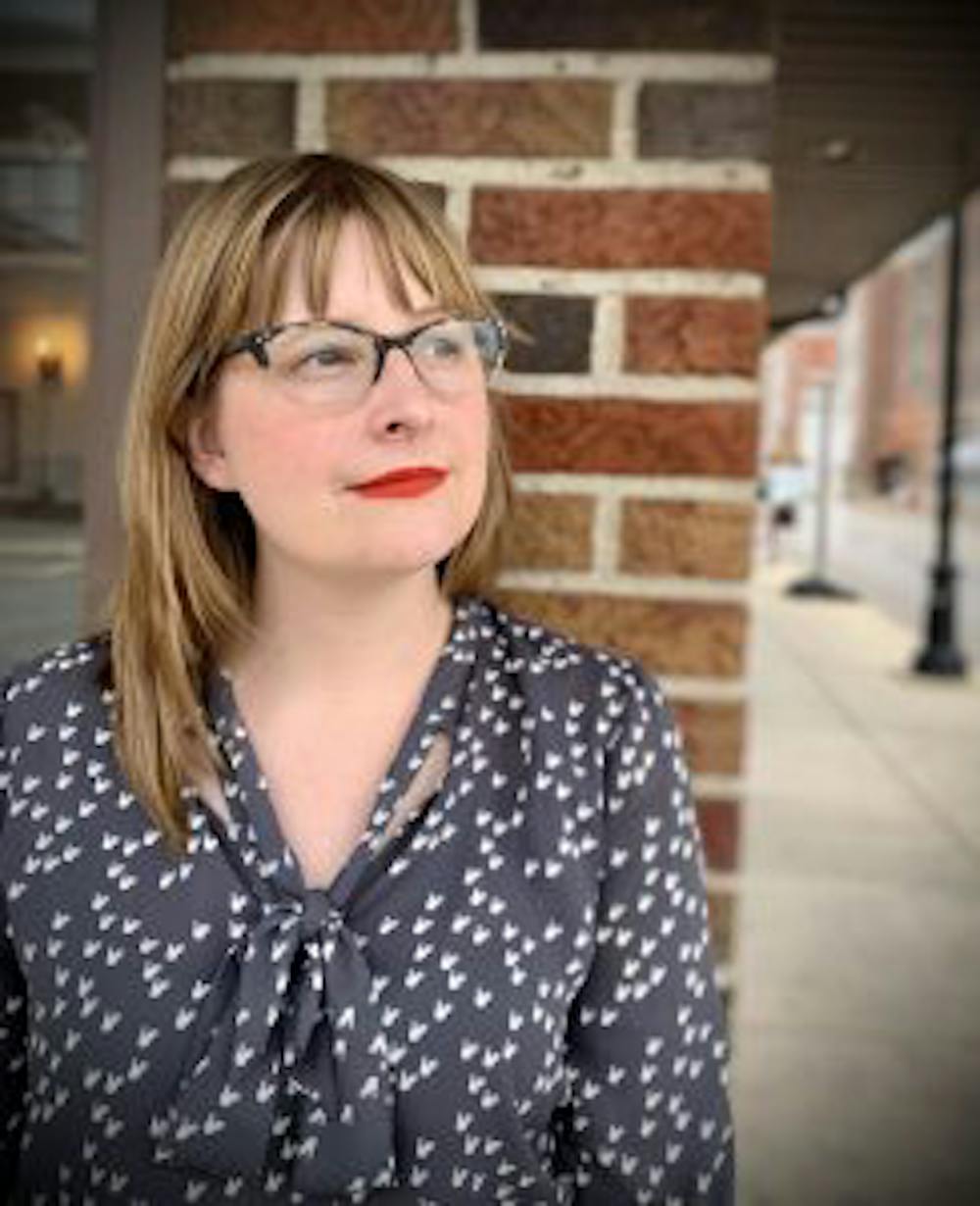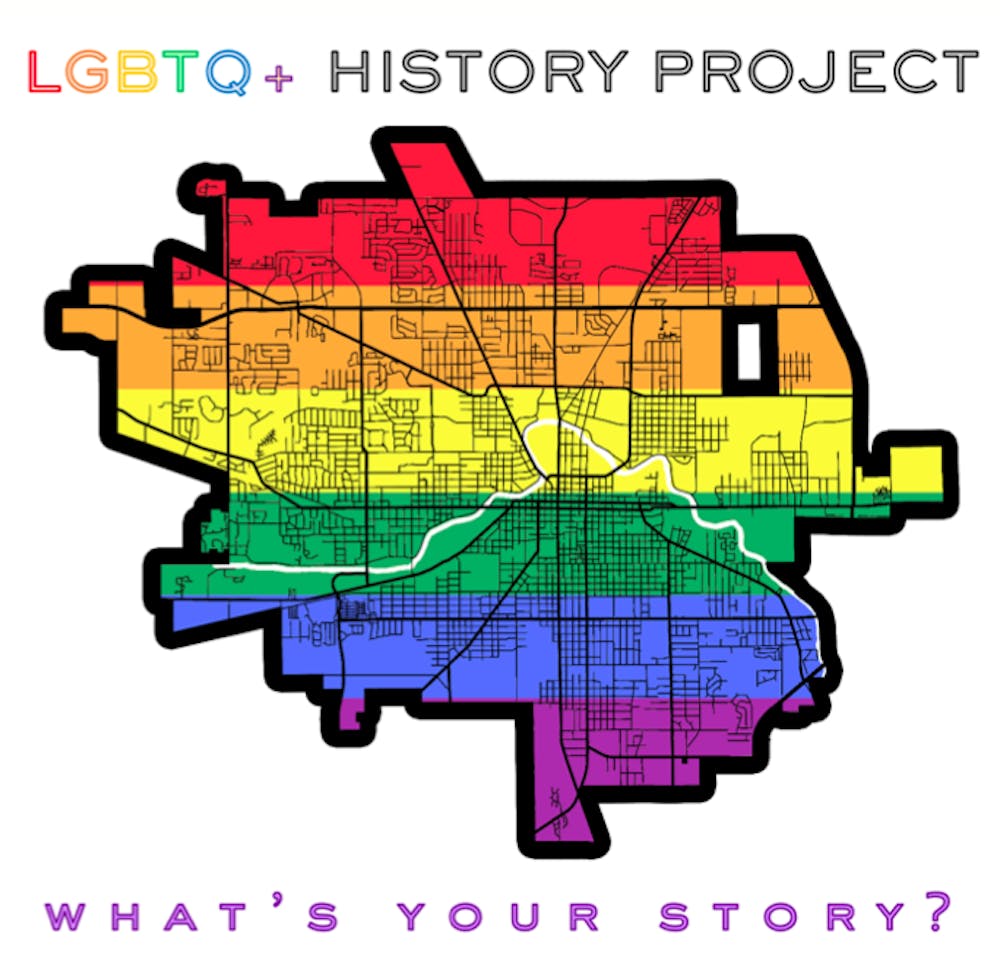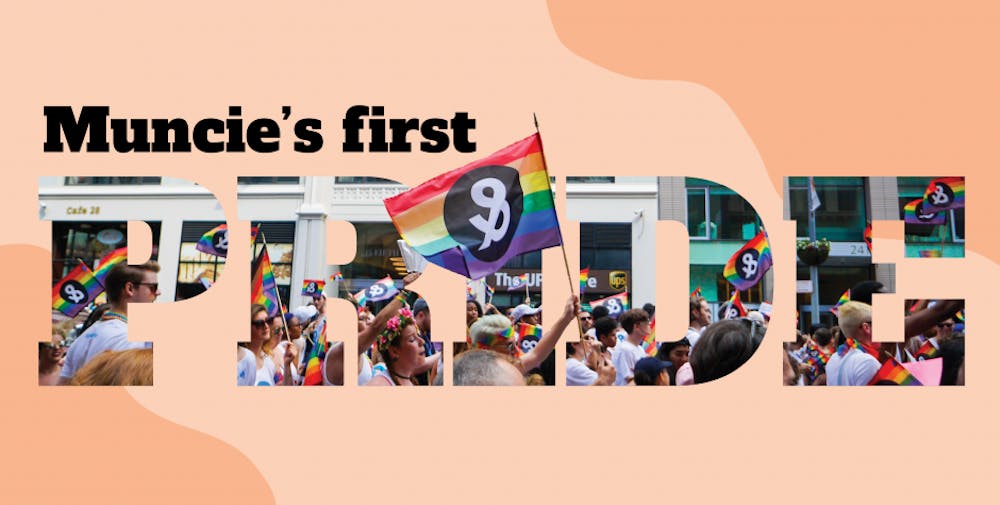Editor’s note: This story was written prior to the COVID-19 pandemic and the Indiana Stay-at-Home order, so some events mentioned may be postponed, canceled, or altered. We’re sorry for any inaccuracies.
In September, Muncie will have its very first Pride festival. SteVen Knipp, one of the organizers, attributes his 17 years as a Muncie resident to him feeling comfortable putting together an event like Pride.
A little over a year ago, SteVen sat down with Laura Janney, executive director of Muncie OUTreach, and Rachel Thompson from IU Health, to discuss the possibilities for Muncie’s first pride. In the past, there have been attempts to establish an ongoing pride in Muncie, but the progress resulted in an idea that wasn’t fully executed. SteVen points to obstacles relating to commitment more than anything else as the reason for the unsuccessful attempts.
The first Muncie Pride is set to happen this year on September 19. The festival will be a safe space for the LGBTQ community and will center around inclusivity regardless of sexual orientation, race, ethnicity, religious background, etc. The intent is to build relationships and grow an understanding of the diverse people in Muncie, according to SteVen.
The idea of a Pride festival is usually accompanied by a parade, but that’s not the case for Muncie’s first pride. Indianapolis’s first pride festival began in 1996, but it wasn’t until nearly six years later that it held its first Pride parade in 2002.
SteVen says the reason for not having a parade in Muncie yet is to get a feel for “Muncie’s temperature,” on having a pride festival.
Emily Johnson, an assistant professor of history at Ball State University, is working on an oral history to preserve the queer history of Muncie through interviews with community members. Through this project, she’s learned about the rich queer history of Muncie.

Emily Johnson is an assistant professor of history at Ball State University. Jacob Musselman, Ball Bearings
Johnson says although it’s always existed, Muncie probably hasn’t always felt like a safe space for the queer community. She highlights the owners of The Mark III Tap Room –– Indiana’s oldest LGBTQ nightclub –– who’ve shared with her stories about people in the 90s coming in and shouting slurs and running away.
“It’s really important to highlight that queer people have always existed here,” she says, “but I think it’s only maybe recently that we’ve seen a proliferation of spaces including Queer Chocolatier, Muncie OUTreach, and Spectrum, to the point where it’s felt maybe safe and do-able for people to have a parental appreciation.”
The Human Rights Campaign examined cities like Muncie for their laws and policies regarding LGBTQ inclusivity in categories like non-discrimination laws and leadership on LGBTQ Equality. According to the data, Muncie ranks 69 out of 100. Of the nine cities in Indiana ranked on this spectrum, Muncie comes in sixth.
In his efforts to rally support for the event, SteVen says he feels the response from the community about hosting the event has been an overall positive one. However, proper precautions are being put into effect to ensure the safety of the community.
Until 2019, Indiana was one of only five states without a hate crimes law. An Indiana University study found that from 317 bias homicides, anti-sexual orientation/gender identity, and anti-race/ethnicity accounted for the majority of them from 1990-2016.
SteVen and the other members of the planning committee have taken active shooter training, and are working with the Muncie police department. SteVen says this is an opportunity to bring the LGBTQ community and the police department, two divided groups, together.
Not only will the event bring together the police department and the LGBTQ community, but it will also bring together a handful of affirming churches in the community: The Quaker church, Urban Light, Grace Episcopal Church, and Church of the Cross. At the event, the plan is to have members of these churches hold up affirming signs to anyone with protesting messages to help maintain a supportive atmosphere.

Emily Johnson, Assistant Professor of History at Ball State University is leading a project to document LGBTQ history in Muncie. Emily Johnson, Logo Provided
The success of this year’s Pride sets a precedent on what the future of these events will look like. According to SteVen, one way to ensure that an event like Pride will continue to be successful in the future is through the support of a community, and one of the ways to help facilitate a conversation and understanding among the Muncie community and the LGBTQ community is through education.
The idea is that the event will pull out people from the community from all different areas and sub-groups. On top of regular food and retail vendors, there will also be vendors offering education on health and housing services. At the festival, SteVen explains there will be an educational and resource tent throughout the day where there will be programming to educate the queer community and the greater Muncie community on how to be better allies toward the queer community.
There will also be things to do for kids of all ages, like bounce houses and face painting for younger kids, and a youth essay contest with a scholarship that is available to students currently enrolled in a college or juniors and seniors in high school.
Before reaching a place where it felt that Muncie could put on a successful pride festival, Johnson found it “really interesting” in seeing the way the LGBTQ community has made a community for themselves.
“There are all these sorts of support groups that have existed forever, like dinner party groups: people who just get together on a weekly basis and have for decades, and the ways in which that space is being claimed,” she says. “I think now we’re seeing that come out more into public spaces, but it’s always existed, it just has had to be invisible and so it has been.”





